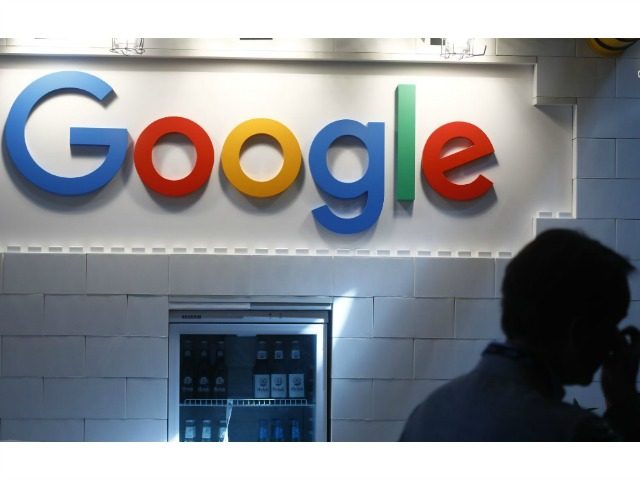Sen. Orrin Hatch (R-UT) wrote to Federal Trade Commission (FTC) Chairman Joseph Simmons on Thursday, urging the agency to investigate Google’s anti-competitive practices.
Hatch, the chairman of the Senate Republican High-Tech Task Force and the senior member and former chairman of the Senate Judiciary Committee, sent a letter to Simmons requesting that the agency investigate Google’s anti-competitive practice in the search and digital advertising markets. The former Senate Judiciary Committee chairman’s letter cites several complaints, reports, and requests that the FTC reconsider Google’s anti-competitive practices since the time the agency investigated Google in 2013.
Hatch wrote in his letter to the FTC:
In the past, Google has offered arguments that its conduct is procompetitive. And Google does have a long track record of providing valuable services and making important, innovative contributions. But much has changed since the FTC last looked at Google’s conduct regarding search and digital advertising.
Hatch also noted that Google has “decided to remove from its platforms legal businesses that the company apparently does not agree with.”
Sen. Hatch said that many of his Senate colleagues wrote to Alphabet, Google’s parent company, regarding its data collection surrounding Google’s Android mobile operating system and privacy practices for Gmail users’ data, which Google has given a third-party access to the actual content of emails.
The senior Utah senator said that although many of these reports concern various parts of Google’s business, many of the most concerning relate to the Google’s “dominant position in search and accumulating vast amounts of personal data.”
Hatch also contended that the FTC closed an investigation into Google’s acquisition of AdMob based on its decision that “Apple quickly will become a strong mobile advertising network competitor.”
Hatch continued, referring to an FTC Bureau of Competition staff report from August 2012 which revealed that it was a close question over whether Google violated Section 2 of the Sherman Antitrust Act. However, the agency declined to pursue any action based on that suggestion. Sen. Hatch explained:
That belief never became a reality. Instead, by many measures, Google’s position throughout the ad market, publisher-side ad servers to ad exchanges to advertiser-side ad servers, has become more dominant. And Google accumulates data at essentially every step.
First, in March 2015, the Wall Street Journal revealed some details of an FTC Bureau of Competition staff report from August 2012 (before the then-Commissioners of the FTC concluded the investigation into Google). That staff report recommended that the FTC pursue an antitrust action against Google because of some of its search practices. The report found that it was a “close question” as to whether Google violated Section 2 of the Sherman Act by “preferencing” its own “vertical content over that of rivals, while simultaneously demoting rival vertical websites.” Ultimately, the staff recommended against pursuing a complaint on that point. The report did, however, recommend action against Google on other issues that the report found to be anticompetitive. Google resolved the issue by promising in a December 27, 2012 letter that it would take certain actions for five years to address those concerns. That time period has now passed.
Sen. Hatch has led Republicans towards investigating monopolies in tech since the last ’90s. In 1998, Hatch chaired a Senate Judiciary Committee hearing investigating whether Microsoft established a monopoly in the computer software industry.
Yelp experienced’s Google’s bias in manipulating search engine results. Yelp used to be popular on the Google’s search engine, reaching the top of the majority of its search results for restaurants. Seeing Yelp’s success, Google attempted to purchase the company in 2009. However, Yelp would not sell, and instead, Google scraped Yelp’s data and put them directly on Google. Yelp complained to Google and the FTC, but Google said the only recourse was to remove themselves from Google’s search engine.
Luther Lowe, vice president of public policy at Yelp said, “We still exist, but Google did everything it could to ensure that we’d never present a threat to them. It’s bullying, but they’re the 800-pound gorilla.”
The European Union (EU) fined Google $5 billion for “denying rivals a chance to innovate” through its Android operating system in July.
“Google has used Android as a vehicle to cement the dominance of its search engine. These practices have denied rivals the chance to innovate and compete on the merits,” claimed EU antitrust chief Margrethe Vestager. “They have denied European consumers the benefits of effective competition in the important mobile sphere.”
Breitbart News also reported this week on the multiple times that Google biased its search results to push leftist policies.
Former Federal Communications Commission (FCC) Wireless Bureau Chief Fred Campbell wrote an op-ed for Breitbart News, charging that Trump should break up Google’s monopoly.
President Donald Trump took to Twitter to chastise Google and criticize its search engine as “rigged” for favoring liberal and establishment news publications in its search results. Trump also said that Google’s biased search results “will be addressed.”
Google search results for “Trump News” shows only the viewing/reporting of Fake News Media. In other words, they have it RIGGED, for me & others, so that almost all stories & news is BAD. Fake CNN is prominent. Republican/Conservative & Fair Media is shut out. Illegal? 96% of….
— Donald J. Trump (@realDonaldTrump) August 28, 2018
The Utah senator also mentioned that Simmons and the FTC commissioners expressed interest in reviving previous decisions on mergers and whether they have been effective.
“In light of all of these changes, I respectfully request that the FTC consider the competitive effects of Google’s conduct in search and digital advertising,” Hatch concluded in his letter.
Read the rest of Hatch’s letter to the FTC here.

COMMENTS
Please let us know if you're having issues with commenting.